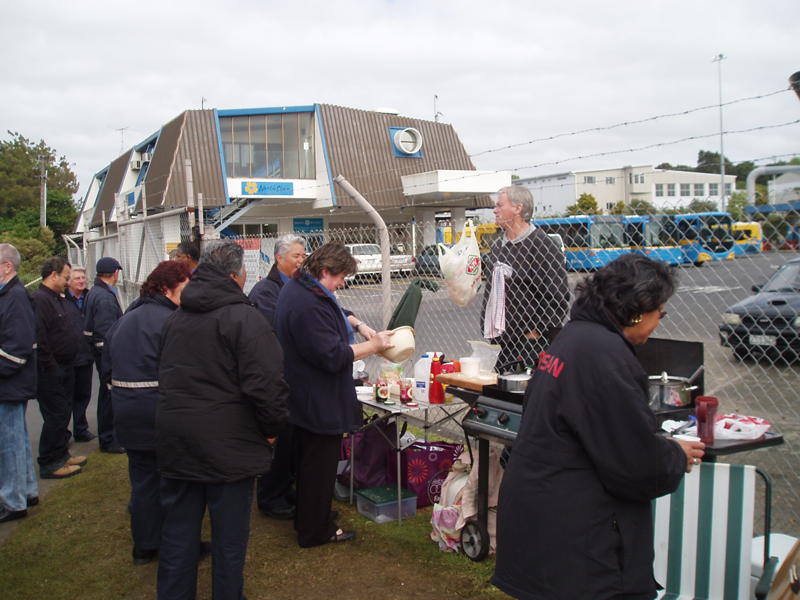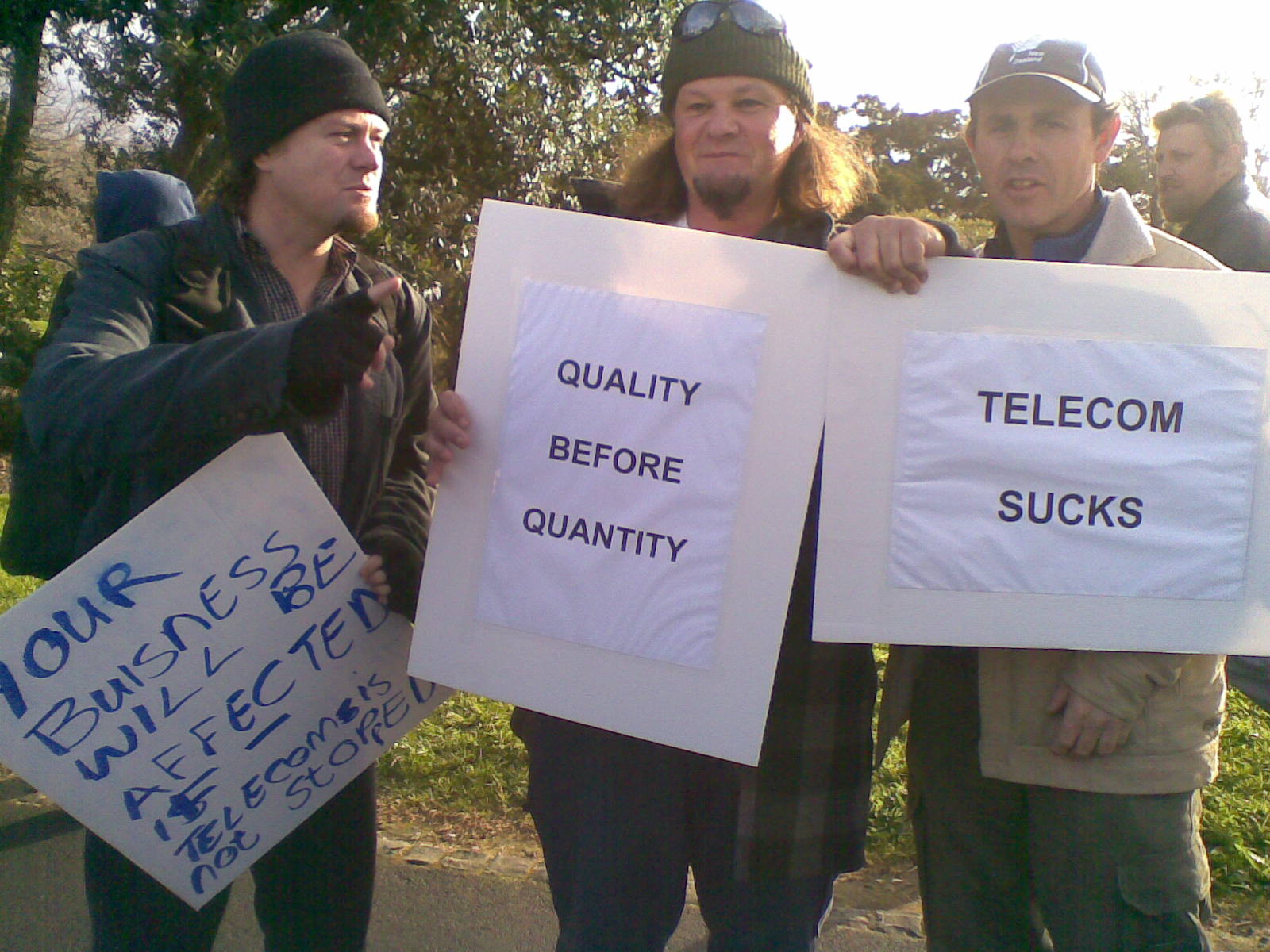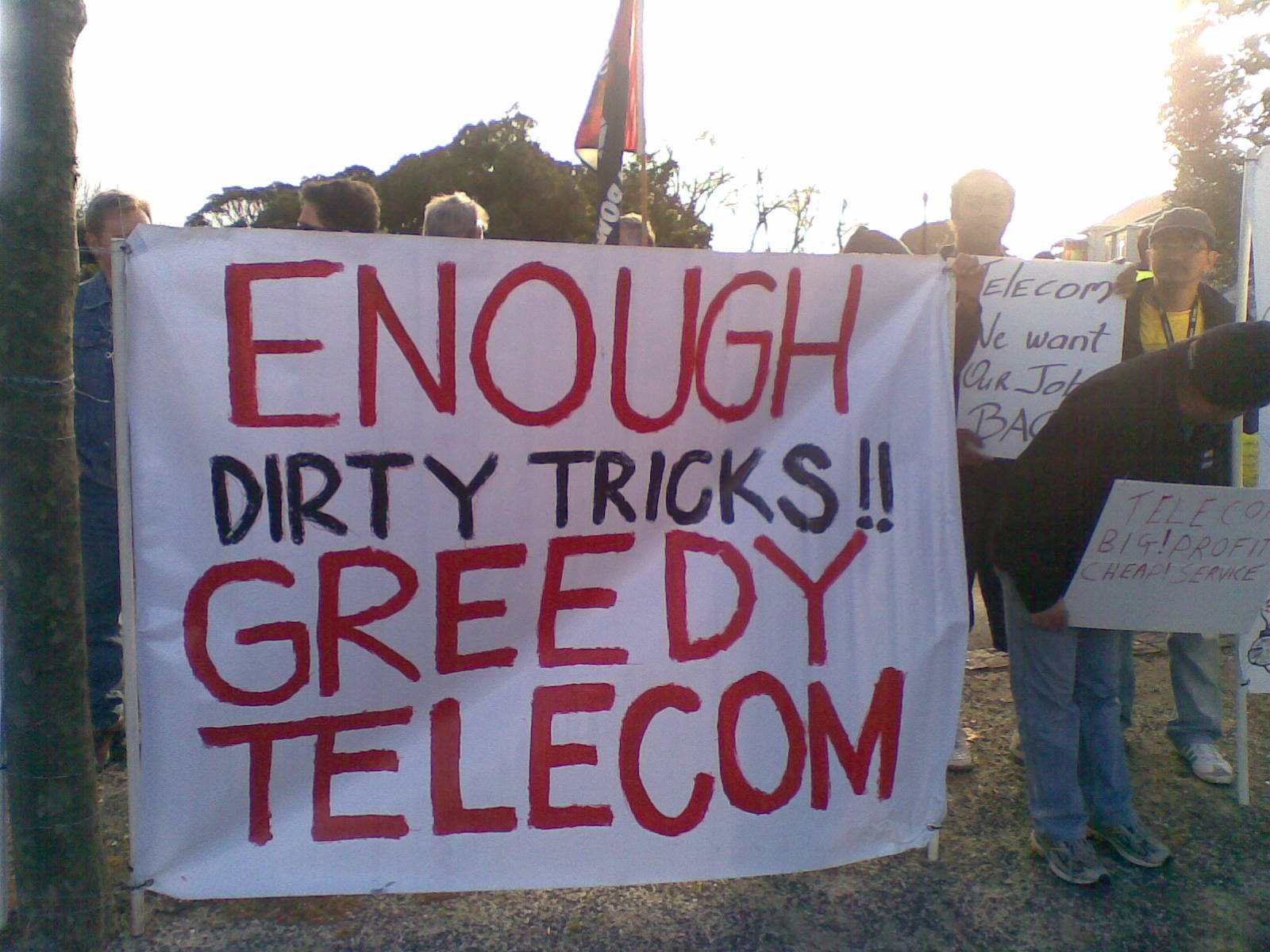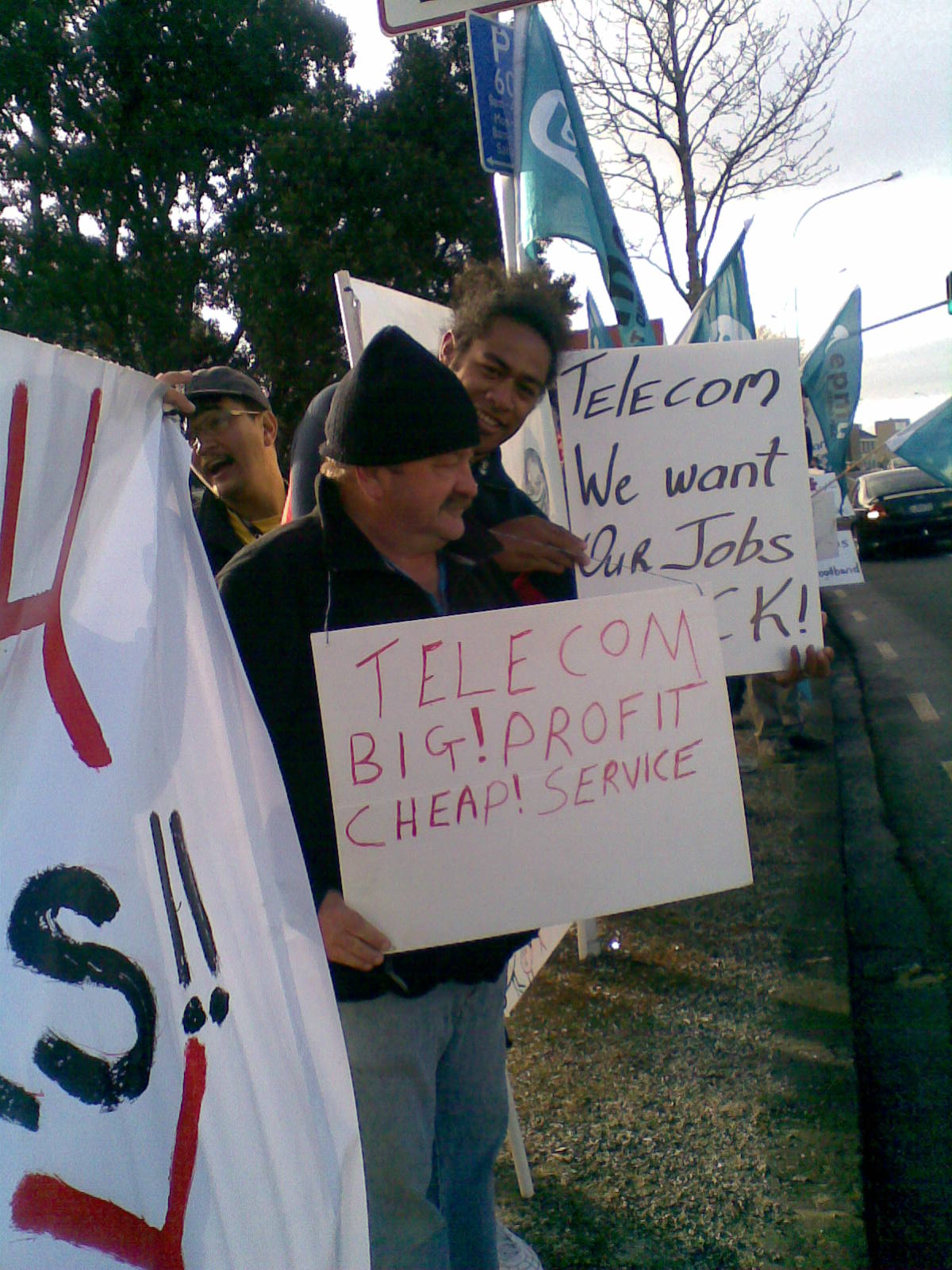Download this leaflet to distribute at your local picket line
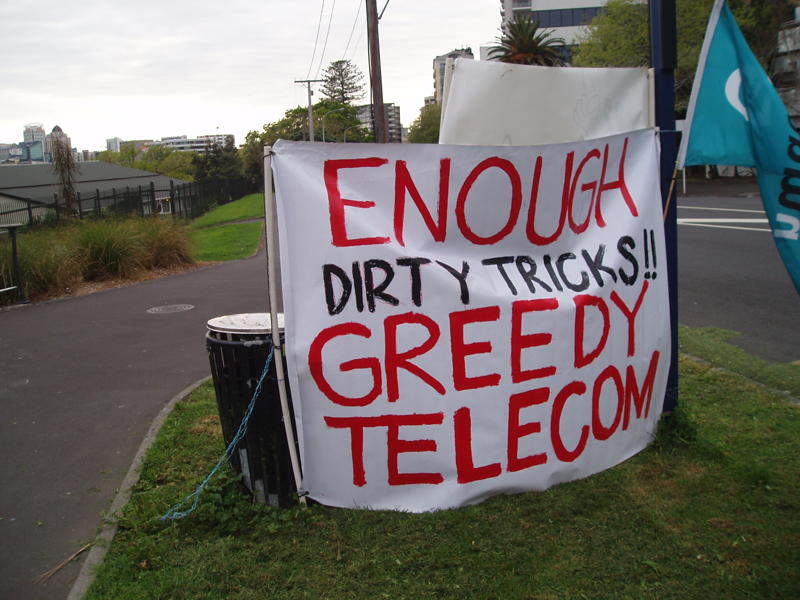
The Workers Party salutes the stand that Telecom line engineers have taken in resisting the bosses’ drive to force you into “Dependent Contractor” status. Where this model has been applied in other industries – notably construction – the result has been that pay and conditions have become severely degraded for all workers.
Many of the strikes in this dispute have been “wildcats” – and all the more effective as a result. It tells you something about who the law favours that the redundancy notices the employer issued were perfectly legal, but engineers had to take action in defiance of the law. The vicious spirit of the 1990s Employment Contracts Act lives on, albeit in the slightly watered down version of the Employment Relations Act. Official or unofficial, effective industrial action is what counts, and the majority of public opinion will be on your side if the message gets out that this is a fight for the whole of the working class.
It was the Labour Party that began the job of privatising Telecom in 1987, and it was National that finished it. We then had nine years of Labour-led government which did nothing to bring Telecom back into public ownership. It’s obvious that utilities like Telecom should be under the democratic control of workers and consumers rather than $5 million men like Reynolds. But to win that will mean a major confrontation with the government. With thousands of other workers facing the threat of redundancy, we have plenty of potential allies.
From the start, the strategy of the employer has been to divide and conquer. Bosses had a go at putting immense pressure on engineers on Work Permits to sign up as Dependent Contractors, because their legal status is tied to their job. This brutally illustrates how immigration controls are nothing more than another weapon in the bosses’ arsenal; they won’t hesitate to use the threat of deportation to bully migrant workers. For this reason, the Workers Party supports Open Borders as the way forward to unite the workers of all countries. To the extent that the bosses’ plans have failed, and migrant workers have joined the picket lines, we can’t miss the boost they provide – both in numbers and in decibels!
Workers fighting redundancies overseas have been resorting to more radical tactics. Since the start of the global downturn factory sit-ins have made a comeback. Faced with the prospect of joining the dole queue, workers have occupied Vestas wind turbines on the Isle of Wight, Ford’s Visteon plants in Belfast and London, SsangYong motors in Korea and Waterford Crystal and Thomas Cook in Ireland. Even where such tactics didn’t result in outright victory for the workers, they ended up increasing the number of jobs saved and winning better redundancy packages.
The current struggle with Telecom has the potential to affect every worker in New Zealand. We can’t treat it just like a normal industrial dispute. Line engineers need to start discussing new tactics to escalate the action and turn the tables on the bosses.


